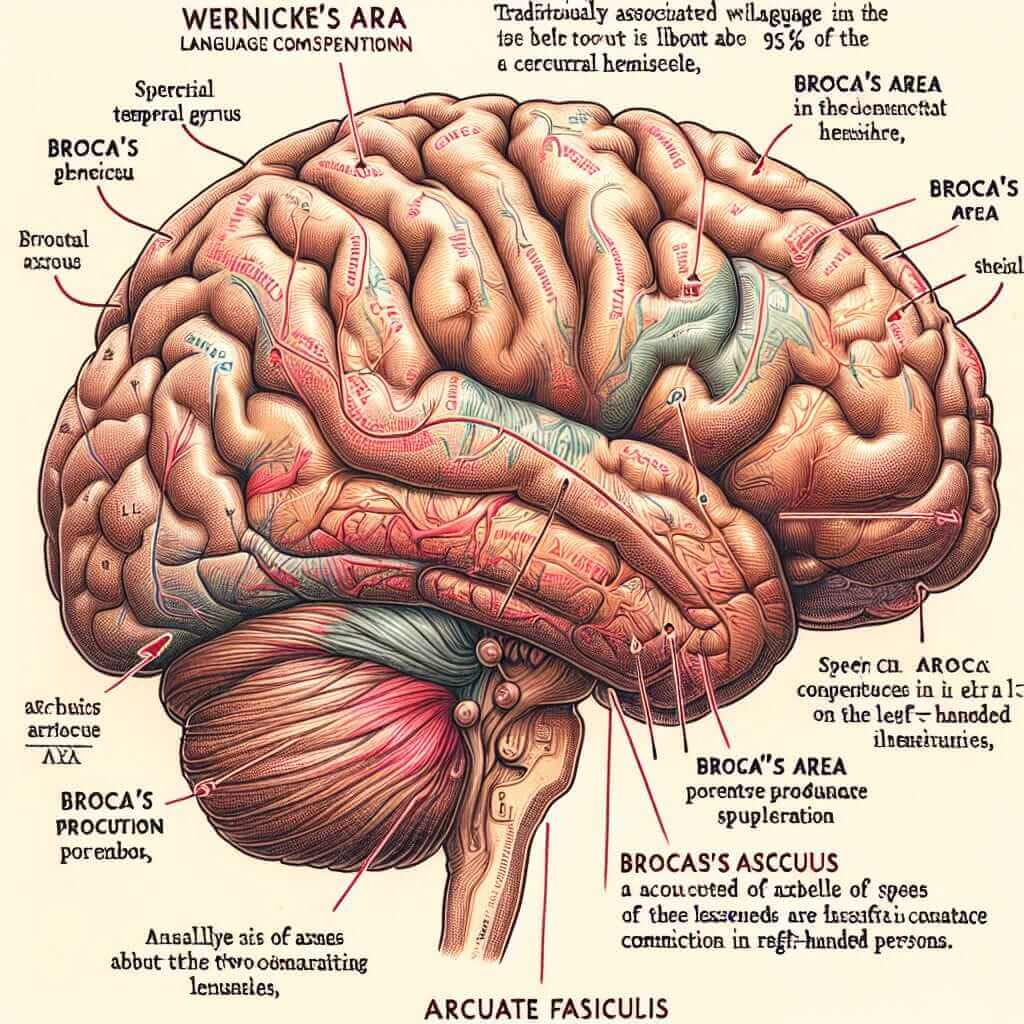As an IELTS instructor with over two decades of experience, I’ve encountered countless students fascinated by the intricate workings of language acquisition. One question that frequently surfaces, especially in the realm of IELTS preparation, is: “How does the human brain process language?”
Understanding this process isn’t just a matter of academic curiosity; it’s deeply intertwined with your IELTS success, particularly in the Speaking and Listening sections. Let’s delve into the fascinating world of neurolinguistics and uncover how this knowledge can elevate your IELTS performance.
The Brain: A Network of Language Centers
Contrary to popular belief, there’s no single “language center” in our brains. Instead, various regions collaborate harmoniously to decode and produce language. Here are some key players:
1. Wernicke’s Area: This region, typically found in the left temporal lobe, is crucial for language comprehension. It helps us understand the meaning of words and sentences, playing a vital role when you’re listening to IELTS lectures or engaging in conversations.
2. Broca’s Area: Located in the left frontal lobe, Broca’s area governs speech production. It helps us formulate grammatically correct and coherent sentences, a skill paramount for achieving fluency and accuracy in IELTS Speaking.
3. The Arcuate Fasciculus: This bundle of nerve fibers acts as a bridge, connecting Wernicke’s and Broca’s areas. It allows for the smooth flow of information between language comprehension and production.

Stages of Language Processing
When we encounter language, our brains engage in a multi-stage process:
1. Auditory/Visual Input: We hear spoken words or see written text, triggering activity in our auditory or visual cortex, respectively.
2. Decoding: Our brains break down the sounds or letters into recognizable units, like phonemes (basic sound units) and graphemes (written representations of phonemes).
3. Lexical Access: We match these units to words stored in our mental lexicon (vocabulary bank), retrieving their meanings and grammatical functions.
4. Syntactic Processing: We analyze the grammatical structure of the sentence, understanding the relationships between words and phrases.
5. Semantic Processing: We construct the overall meaning of the sentence, drawing upon context, background knowledge, and inferences.
Relevance to IELTS
This understanding is directly applicable to your IELTS journey:
Listening: Recognizing how your brain processes spoken language can help you anticipate information, identify key points, and focus on relevant details during the IELTS Listening test.
Speaking: Knowing how your brain formulates language encourages you to practice fluency, improve pronunciation, and construct grammatically sound sentences, all essential for a high Speaking score.
Reading: Understanding lexical access and semantic processing aids in comprehending complex texts, deciphering unfamiliar vocabulary, and answering comprehension questions effectively.
Tips for Success
Here are some actionable tips based on our understanding of language processing:
- Active Listening: Engage actively with English audio materials. Focus on identifying key words, anticipating information, and summarizing what you’ve heard.
- Vocabulary Enhancement: Regularly expand your vocabulary through reading, using flashcards, and practicing word associations.
- Grammatical Accuracy: Pay close attention to grammatical structures. Practice constructing complex sentences and using a variety of tenses.
- Fluency Development: Engage in regular English conversations with native speakers or language partners to enhance natural flow and pronunciation.
Conclusion
The human brain’s ability to process language is truly remarkable. By understanding the basic principles of language acquisition and applying targeted strategies, you can significantly enhance your IELTS performance. Remember, consistent effort and a strategic approach are your keys to success.